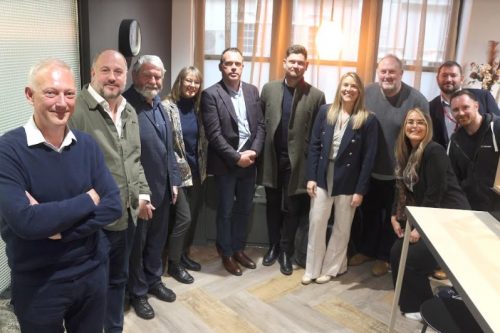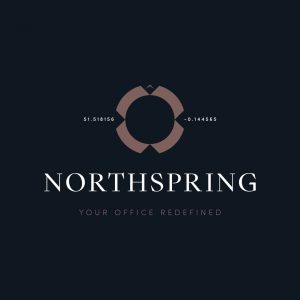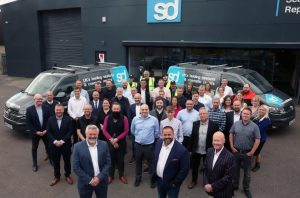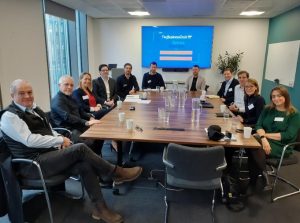How to protect and leverage intangible assets

A roundtable staged by TheBusinessDesk.com at Northspring Leeds has explored how businesses can harness intangible assets to unlock the full value of their enterprise to accelerate growth.
The roundtable was chaired by Andrew Staples, Yorkshire editor of TheBusinessDesk.com.
The event, backed by main sponsor Growth Lending and also supported by Aon, Freeths and Sagars, saw a panel delve into the hidden value that can make a company stand out from the crowd, whether it is brand image, growth rate, customer successes and retention, referrals, use of contracts or efficiency of that firm’s processes.
Panel members examined how companies can demonstrate these assets to appeal to investors and future-proof their growth plans.
Georgie Lynskey, of G Digital, stressed businesses must get to grips with the importance of their brand and how to market it properly.
“I understand the power of brands and marketing, but not everyone does,” she said. “A lot of businesses, especially those in the tech industry, they are all about the technology. They don’t see the value of marketing.
“Don’t underestimate the power of the brand. There’s no point in having a good business if people don’t know it exists.”
Steve Wilson, of Aon, agreed that branding is crucial, saying: “The first thing I’d ask a business is are you valuing your brand? What steps are you taking to protect it? How do you take these intangible assets and get them insured?”
He also said businesses wanting to identify and get the most out of their intangible assets should not be scared about picking up the phone to an advisor. “Most of us don’t want big fees, we just want to work with businesses as they grow,” he added.
Frank Suttie, of Freeths, used his own company’s approach to branding as an example.
He said: “We’re a large, national law practice and our brand is ‘Free Thinking’. It shows our lawyers are liberated in the way they give advice and this has a positive impact on our recruitment and retention.”
Richard Kenny, of Interact, said for him it should be less about a company’s brand and more about what it is doing to make the world a better place.
He said: “I’ve turned down multi-million pound deals with Amazon because I don’t want to work with them, because I don’t like their values.
“Yes there are risks with this approach, but we have the best staff in the world in a very small team, and they want to stay with the company.”

The meeting room at Northspring Leeds, which hosted the Intangibles Roundtable
Ryan Sorby, of Growth Lending, said that as an alternative lender, his business does examine companies’ intangibles when deciding whether these firms have enough value as security to lend against.
But he pointed out that it is not easy to form a consensus when trying to value a company’s brand.
“If you buy a business and know it’s worth £10m to you but the balance sheet has £2m worth of assets on it, an auditor will come and see there’s £8m worth of intangibles,” he said. “But what can they then look at to make sure there’s proof this business can generate value over time?
“Anything can happen over five, 10 or 15 years. What is a brand worth today compared to how much it is worth following some bad press tomorrow?”
Picking up on the topic of valuation, Gary Woodhead, of Curveblock, said this is not a straightforward matter when it comes to innovative tech firms.
He explained: “When you step into innovation and introduce a product that hasn’t been seen before, you’re initially storytelling. And the last thing you do when you’re storytelling is look at your valuation.
“How do you value a digital asset? You have to look at the adoption ratio and the size of the market. But most innovators aren’t developing something for the cash, they’re doing it to make an impact. The value is in the solution to the problem.”
Commenting on his own company’s experience, Woodhead said: “We’ve got 49 angel investors and a VC behind us and it has been a different conversation with each of them when we talk about valuation.”
Vicki Taylor, of Growth Lending, agreed that all lenders must take businesses’ intangibles into account, including factors such as the strength of a firm’s management team or the robustness of its business plan.
She said: “The people and culture of a business at a personal level is key when it comes to deciding whether to lend to a business.
“I will not lend until I’ve visited the business and seen for myself what’s it’s like and decided what my gut feeling about is.
“There should not be any lenders that will lend purely because the finances and tangibles are good. If the people and culture aren’t good, then you should not be doing the deal.”










